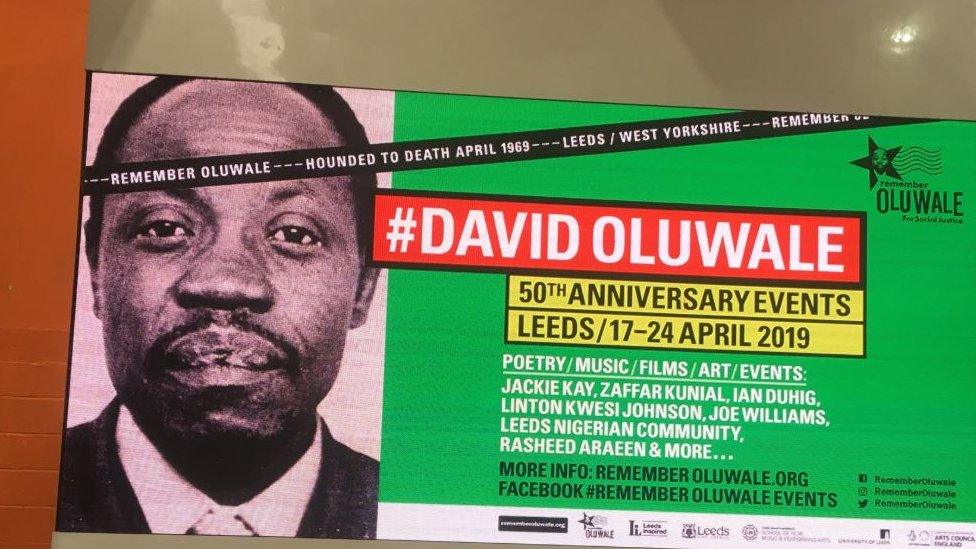David Oluwale: Anti-terrorism measures urged for sculpture
- Published
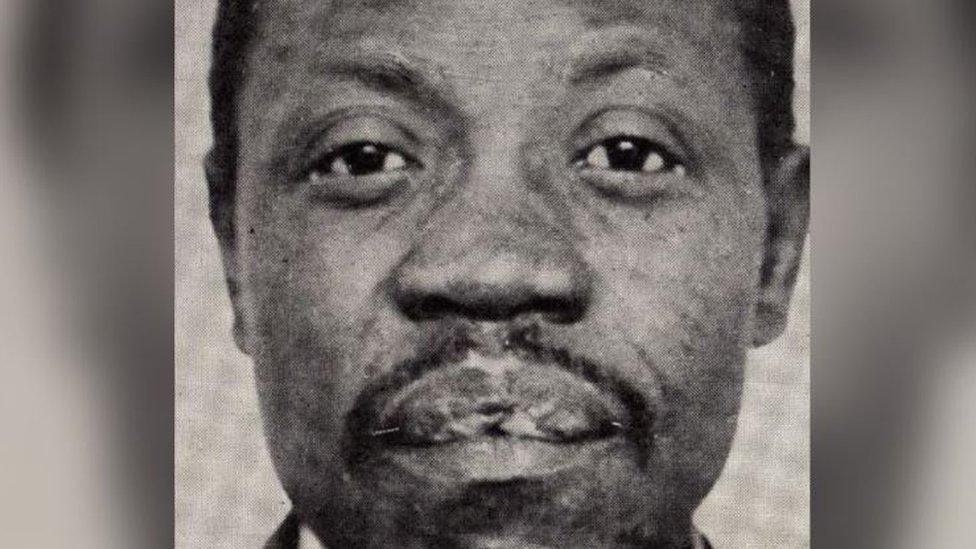
Mr Oluwale's death led to the first prosecution of British police for involvement in the death of a black person
A sculpture dedicated to a man who died after being chased by police should be protected by anti-terror measures, a council has said.
British-Nigerian David Oluwale was found drowned in the River Aire in Leeds on 18 April 1969.
Leeds City Council said the artwork, to be unveiled next year, should also have "anti-vandalism" features.
The authority said the theft of a blue plaque honouring Mr Oluwale had fuelled the security concerns.
A replacement for the stolen Leeds Bridge memorial - which disappeared just hours after its April unveiling - was also damaged shortly after it was put in place.
The new sculpture is set to be installed in Aire Park - a new green space on the former Tetley Brewery site in Hunslet.
Councillors said they had asked British-Nigerian artist Yinka Shonibare, who has been commissioned to create the piece, to include measures such as graffiti-resistant paint in the design.
It said anti-terror measures to prevent vehicle attacks against the public and the artwork were already in place at the Meadow Lane site.
Following the theft of the plaque earlier this year, the authority said it also planned to install CCTV in the area, according to the Local Democracy Reporting Service.
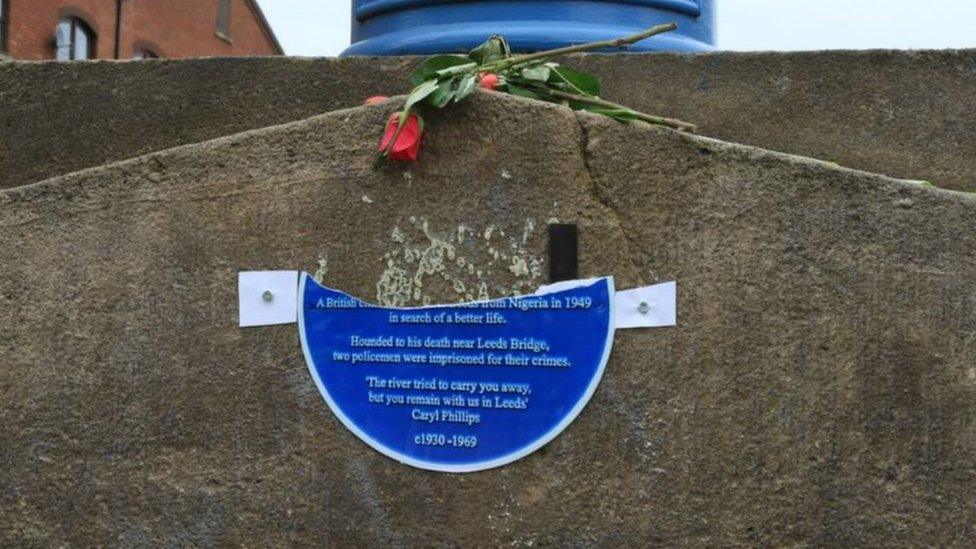
A temporary replacement for the stolen plaque was damaged by vandals

Who was David Oluwale?
Born in Lagos in 1930, David Oluwale migrated from Nigeria in August 1949.
He hid on a cargo ship destined for Hull and was jailed for being a stowaway.
Upon release, Leeds became his home and he worked in industries helping rebuild the post-war city.
But after being re-incarcerated and labelled schizophrenic, David Oluwale spent his final two years homeless in Leeds city centre, routinely mentally and physically abused by police officers Insp Geoffrey Ellerker and Sgt Kenneth Kitching.
Mr Oluwale was chased by the officers towards the River Aire in the early hours of 18 April 1969 and his body was found in the water two weeks later.
The officers were later jailed for a series of assaults, but justice and civil rights campaigners said their trial presented a deliberately negative portrait of Mr Oluwale as a "social nuisance".

Follow BBC East Yorkshire and Lincolnshire on Facebook, external, Twitter, external, and Instagram, external. Send your story ideas to yorkslincs.news@bbc.co.uk, external.
Related topics
- Published9 May 2022
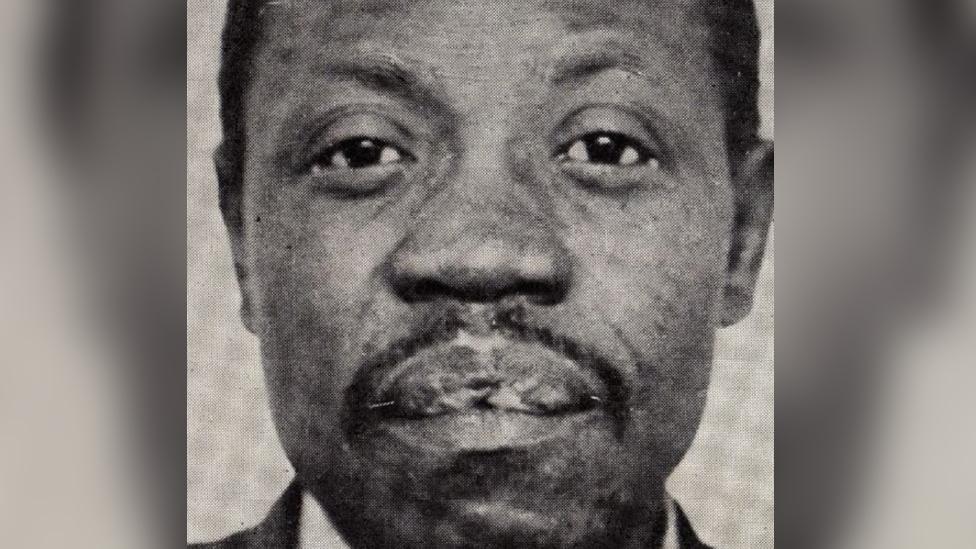
- Published28 April 2022
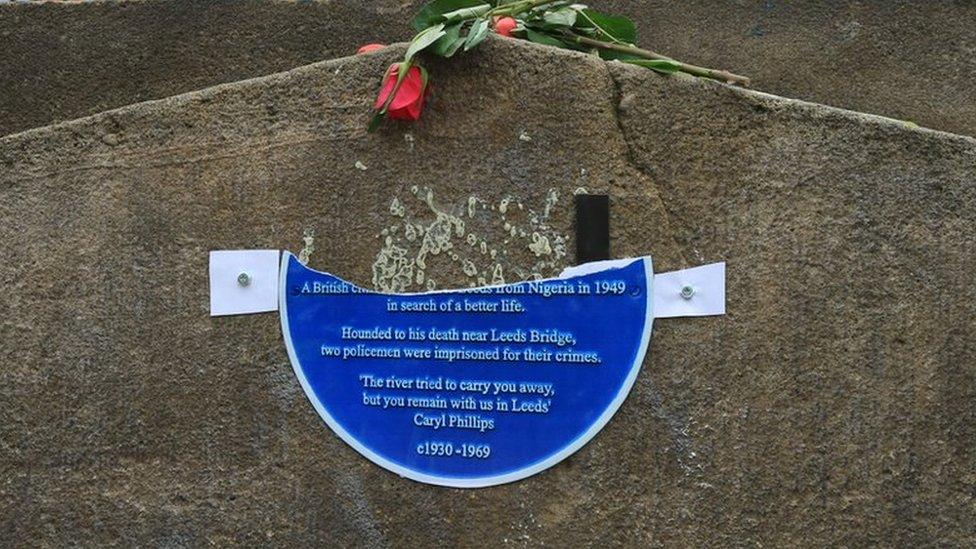
- Published25 April 2022

- Published19 April 2019
